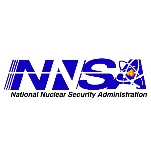Officials
Offical

The White House announced on August 1 President Obama’s intent to nominate retired Air Force Lt. Gen. Frank G. Klotz as the Department of Energy’s under secretary for nuclear security and administrator of the National Nuclear Security Administration (NNSA). NNSA oversees the U.S. nuclear weapons complex and supplies fuel for the Navy’s nuclear-powered ships. If confirmed by the Senate, he will succeed Neile L. Miller, who has been acting administrator of NNSA since January, when Under Secretary Thomas D’Agostino retired.
Born circa 1951, Frank Klotz earned a B.S. in International Affairs at the Air Force Academy in 1973. A Rhodes Scholar that same year, at Oxford Klotz earned an M.Phil. in International Relations in 1975 and a D.Phil. in Politics in 1980.
After his time at Oxford ran out in July 1976, Klotz served as an international politico-military affairs officer at the Directorate of Concepts at USAF headquarters from September 1976 to February 1978, and as military assistant for special projects in the Office of the Assistant Secretary of Defense for Manpower, Reserve Affairs and Logistics from March 1978 to July 1979.
Klotz then returned to Colorado Springs to teach at the Air Force Academy, serving as an instructor, assistant professor and associate professor in the Department of Political Science from July 1979 to August 1982, using this time to finish his doctoral dissertation.
Klotz spent another year in Washington, from September 1982 to August 1983, serving as a White House fellow and special assistant to the deputy secretary of state, and from September 1983 to January 1984, Klotz had his first assignment somewhere other than Colorado, Washington or Oxford, as a student at the 4315th Combat Crew Training Squadron at Vandenberg Air Force Base (AFB) in California.
Klotz spent the next three and a half years at Grand Forks Air Force Base in North Dakota, where he first focused on nuclear weaponry. He served as a Minuteman ICBM combat crew commander in the 446th Strategic Missile Squadron from January to August 1984, as an operations officer in the 447th Strategic Missile Squadron from August 1984 to July 1985, as chief of the Standardization and Evaluation Division of the 321st Strategic Missile Wing from July 1985 to March 1986, and as commander of the 447th Strategic Missile Squadron from March 1986 to July 1987.
After a year as a senior research fellow and student at the National War College from July 1987 to June 1988, Klotz served two stints at the U.S. Mission to NATO in Brussels, Belgium, as a defense plans officer from July 1988 to February 1990, and as chief of the Nuclear Biological and Chemical Plans Branch from February 1990 to August 1991.
Klotz spent most of the 1990s away from Washington, with the sole exception of service as director of the Chief of Staff’s Operations Group from February 1993 to December 1994.
Otherwise, he served as commander of the 321st Operations Group at Grand Forks AFB from August 1991 to February 1993, as commander of the 91st Missile Group at Minot AFB from January 1995 to August 1996, as director of Logistics at Headquarters Air Force Space Command at Peterson AFB in Colorado from August 1996 to August 1997, and as a military fellow at the Council on Foreign Relations in New York City from August 1997 to August 1998.
From September 1998 to June 2001, Klotz was a military diplomat, serving in Arlington, Virginia, as defense attaché designate to July 1999, and as defense attaché at the U.S. Embassy in Moscow, Russia, from July 1999 to June 2001.
Fresh off his tour in Moscow, Klotz served as director for Nuclear Policy and Arms Control at the National Security Council from July 2001 to May 2003, where he represented the White House in talks that led to the 2002 Moscow Treaty to reduce strategic nuclear weapons. From May 2003 to October 2005, he served as commander, 20th Air Force, Air Force Space Command, and commander, Task Force 214, U.S. Strategic Command, at Francis E. Warren AFB in Wyoming. He was then vice commander of the Air Force Space Command at Peterson AFB in Colorado from October 2005 to August 2007.
Back in Washington, Klotz served as assistant vice chief of staff and director of Air Force Staff at USAF Headquarters from August 2007 to August 2009, retiring from the military after a stint as commander of the Air Force Global Strike Command at Barksdale AFB in Louisiana, at the time a new organization of 23,000 that assumed responsibility for all U.S. nuclear-capable bombers and land-based missiles under a single chain-of-command, from August 2009 to January 2011.
Klotz has been a senior fellow for Strategic Studies and Arms Control at the Council on Foreign Relations since July 2011, and an independent consultant since March 2011. He is a member of the International Institute for Strategic Studies, the Committee on International Security and Arms Control of the National Academy of Sciences, and the Secretary of State's International Security Advisory Board.
Klotz is the author of America on the Ice: Antarctic Policy Issues (National Defense University Press, 1990) and Space, Commerce and National Security (Council on Foreign Relations Press, 1999).
-Matt Bewig
To Learn More:
Frank Klotz (Wikipedia)
Official Biography (Council on Foreign Relations
Questions for Lt. Gen. Frank Klotz, Head of Global Strike Command (Popular Mechanics)
- Latest News
- D.C. Public Schools will Teach all Second-Graders to Ride a Bike
- New Rule in Germany Limits Sales of Sex-Themed E-Books to 10pm to 6am
- What Happened to the 6-Year-Old Tibetan Boy the Chinese Government Kidnapped 20 Years Ago?
- U.S. Ambassador to Turkey Photoshops his Hair Color to Mock Turkish Mayor
- Mystery Artist Calls Attention to Unfixed Potholes by Drawing Penises around Them





